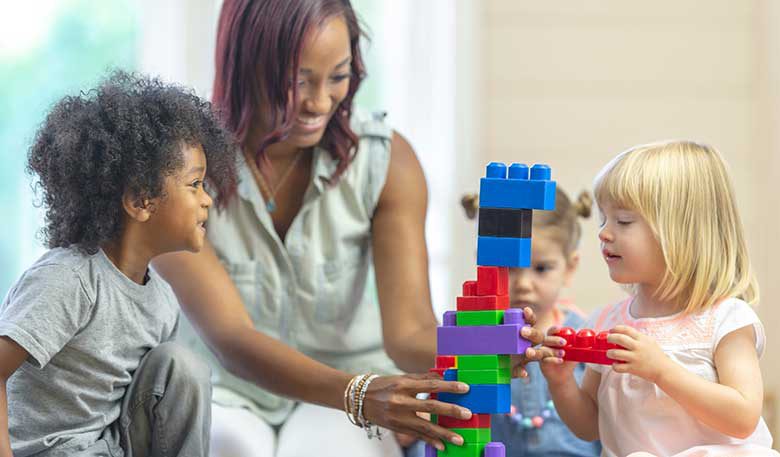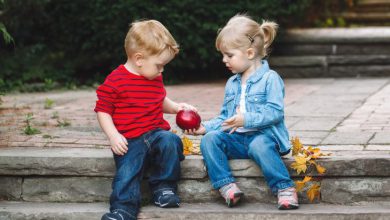Teaching Kids to Be Kind

Teaching Kids to Be Kind
Asking a parent, “Do you want your kids to be kind?” is sort of like asking them, “Do you want your kids to be safe, successful, and loved?” They’re going to say yes!
Thankfully, being helpful and comforting comes naturally to little kids. And while empathy develops over time, by the age of 2, children start trying to comfort others who are obviously upset. By age 4, they can better understand when they’ve hurt someone and apologize. That may seem surprising, but kids are very sensitive to their worlds. They see the importance of kindness, especially if it’s reflected in the lives of those around them.
So with so much focus on kindness, we might expect our kids to understand that we want them to act like this …
So why do we still see so much of this in the world?
One answer is that kindness isn’t celebrated in today’s American culture. “Kids, with their sensitive antennae, pick up on all this,” says Adam Grant of The Atlantic. “They see their peers being celebrated primarily for the grades they get and the goals they score, not for the generosity they show. They see adults marking their achievements without paying as much attention to their character … Of course, we should encourage children to do their best and to take pride and joy in their accomplishments — but kindness doesn’t require sacrificing those things.”
That statement is backed up by data. Recently, Harvard researchers found 80% of youth say their parents care more about their personal achievements or happiness than whether they are kind human beings.
So how can we celebrate kindness and make sure our kids know it’s an important virtue? We can start by asking ourselves these questions:
- Am I making kindness a priority in MY life?
Parents are the first role models that children have. Ask yourself if there are any unkind behaviors that you exhibit (whatever just popped into your head, it’s that one) and find ways to minimize them. Not only that, but make sure your kids see you being kind so they know what kindness looks like: be nice to the barista, a courteous driver, and a helpful neighbor. Your kids will notice.
Another great way to show kids that kindness is a priority is by talking about their kind actions just as much as their academic and athletic accomplishments. Make sure and ask them if they were kind to others that day when you ask the more routine questions of “What did you learn at school?” and “How was practice?” This elevates kind acts to the same level as personal accomplishments.
And don’t fret. This focus on being a role model for kindness certainly doesn’t mean you have to be perfect. Children respect and trust adults more when they acknowledge their mistakes and flaws. Being kind should be talked about as a journey, not a destination.
- Do I let my kids help … even when it’s inconvenient?
One of the biggest ways parents can instil kindness in their kids is by letting them help with tasks around the house.
But let’s be honest … kids sometimes create more work for parents while they’re trying to be helpful. A simple, “I want to help carry the groceries” turns into …
And makes us do this …
It’s so easy to dismiss them and tell them to stop. But shooing your child away or excluding them from helping can erode their motivation to help altogether. Lucia Alcala, a psychologist and author of “Hunt, Gather, Parent,” says how parents respond to a young child who shows interest in helping is key to whether that child grows into a 12-year-old who wants to help or one who rolls their eyes when you ask.
When we allow our kids to help — even if it causes a mess or takes more time — and extend our appreciation for that help afterward, it creates an internal desire to keep being helpful.
These tasks don’t need to be big ones. Have your child or toddler hold the door open for you when your arms are full, hand you something that’s just out of reach, or put plates on the table for dinner. “These are quick, easy subtasks that kids can do. But they are real tasks. They are genuinely useful and make a real contribution,” says Michaeleen Doucleff of NPR’s Science Desk.
- Does my child know how to manage their feelings?
Toddlerhood and Pre-K kids experience a lot of big emotions. So much of being kind is learning how to manage the more destructive ones. Our little ones need help learning how to feel what they feel and how not to be unkind when those emotions are overwhelming.
(Moment of honesty: Even for adults, this is hard.)
“Ask your child to stop, take a deep breath through the nose and exhale through the mouth, and count to five,” says Amy Joyce, writer and editor for On Parenting at the Washington Post. “Practice when your child is calm. Then, when you see her getting upset, remind her about the steps and do them with her. After a while she’ll start to do it on her own so that she can express her feelings in a helpful and appropriate way.”
And, again, a parent’s behavior is vital here. Kids will copy what they see, so they’ll respond with their emotions the way they see you respond. A kinder parent leads to kinder kids.
The Long-Term Effects of Kindness
Kindness benefits everyone. Parents who try to be more kind create kids who are more kind. While it may be hard to choose kindness and empathy every time (let’s just be honest, it’s impossible), a simple “I’m sorry” and a commitment to do better is all that’s required to set things back on the right path — that goes for kids and parents alike.
A kinder world sets kids up for success in all kinds of ways. “Quite a bit of evidence suggests that children who help others end up achieving more than those who don’t,” says Grant. “In part, that’s because concern for other people promotes supportive relationships and helps prevent depression.”
Together, let’s show grace and kindness to each other. Our kids will have genuine examples of kindness in their lives, and we can all work together toward a more compassionate world.





